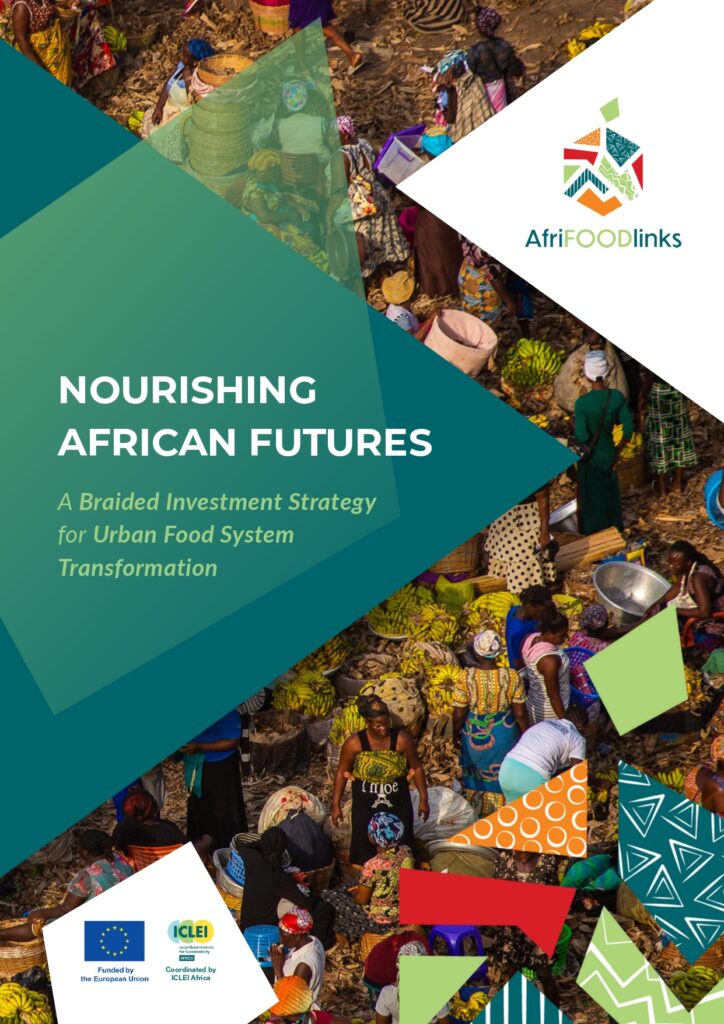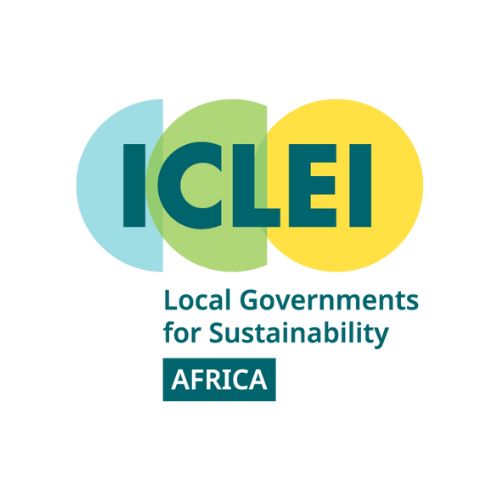Home » Explore the latest project news » Embracing a new approach to familiar challenges
Embracing a new approach to familiar challenges
AfriFOODlinks is taking a distinctly bold, African approach to transforming urban food systems on the continent - and beyond.
AfriFOODlinks proposes a new approach for equitably feeding and nourishing cities and an innovative way of conducting research in Africa.
Decades of research designed and conducted by institutions outside of the continent have provided useful knowledge. However, much of this research reinforces external food system and food governance theories that are unsuited to the needs of urban food system actors in Africa. It is time for African research institutions to take charge of this research agenda, based on their experiences and perspectives.
The African continent is endowed with the resources and opportunities for creating and experimenting with new ways of understanding and solving its challenges. It is a space for celebrating multiple ways of knowing, and for bridging knowledge and action. The main ambition of this project is to transform not only the governance of food systems in Africa, but the governance of research between Africa and Europe.
AfriFOODlinks is supported and led first and foremost by African institutions allied with European institutions. It brings together the best scientific teams on the African continent, with leading food system practitioners, internationally-connected advocacy organisations, and committed local governments, all of whom have been working for several decades on urban food systems.
The scope of work aims to impact 65+ Cities (46 African, 10 European and 9 from other global South regions), most of whom are signatories to the Milan Urban Food Policy Pact (MUFPP) and are truly committed to ambitious urban food policies and practices.
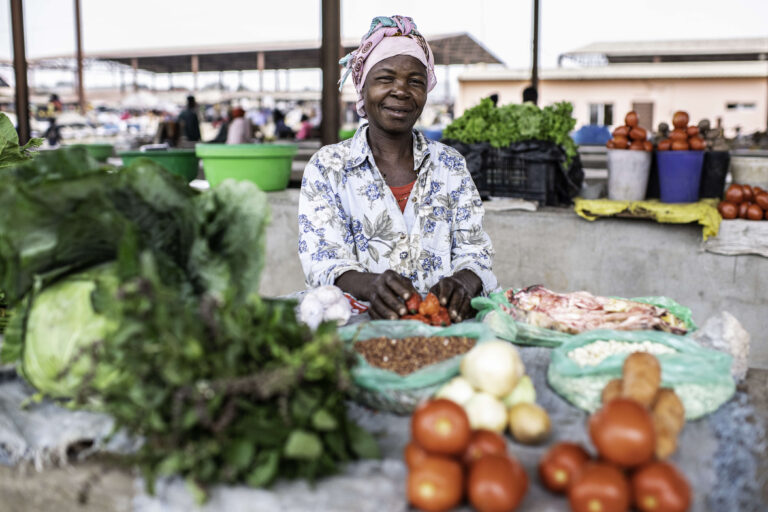
AfriFOODlinks proposes an original approach, in which research is not undertaken according only to scientific needs and then disseminated to users, but rather in which research is driven by the needs of its very end-users (i.e. political actors, stakeholders and the population) and co-created with them, enabling greater scientific and social relevance and rigour. It is supported by the unique convening power of ICLEI and MUFPP that brings cities into engagement and learning with each other and it aims to enhance existing initiatives in each of the project cities.
Overall AfriFOODlinks aims to achieve the multiple and interconnected objectives of food security, health and nutrition, job creation and regeneration of the environment, especially for young people and women, through more inclusive and balanced governance.
Africa is in the midst of a colossal urban transition – its urban population is growing rapidly, from an estimated 200 million (31% of Africa’s population) in 1990 to 548 million (43%) in 2018, and estimated to reach 1,489 million (59%) by 2050 [1]. This population growth is traditionally problematised by mainstream institutions as driving increasing levels of urban food insecurity, poverty and malnutrition. Indeed, the number of undernourished people in the region increased by 47.9 million between 2014 and 2019 [2] and in 2020, it was estimated that close to two-thirds of the population were food insecure [3]. In addition to food insecurity, a large portion of Africans are suffering from one or more forms of malnutrition stunting [4] which directly limits realisation of their own potential and economic development for Africa. This worrying situation is not necessarily due to limited food production and supply, but rather to the lack of appropriate channels for access to sufficient and nutritious food [5]. However, the urban transition can be a catalyst for addressing food insecurity and wider socio-economic change, particularly if viewed through an inclusive food systems lens.
Until fairly recently, national and regional African leaders largely ignored, or were openly hostile to a wider urban agenda, putting political focus instead on issues such as the peasantry, rural agriculture, natural resource use or national sovereignty. The anti-urban bias has been receding [6] due to evidence of the rate and scale of African urbanization, political commitments to the New Urban Agenda, and a growing interest in the urban dimensions of topics as diverse as violence [7], economic prosperity [8,9], social polarization [10], environmental poverty [11] the burden of disease [12], youth [13,14,15], biodiversity [16], and resilience [17].
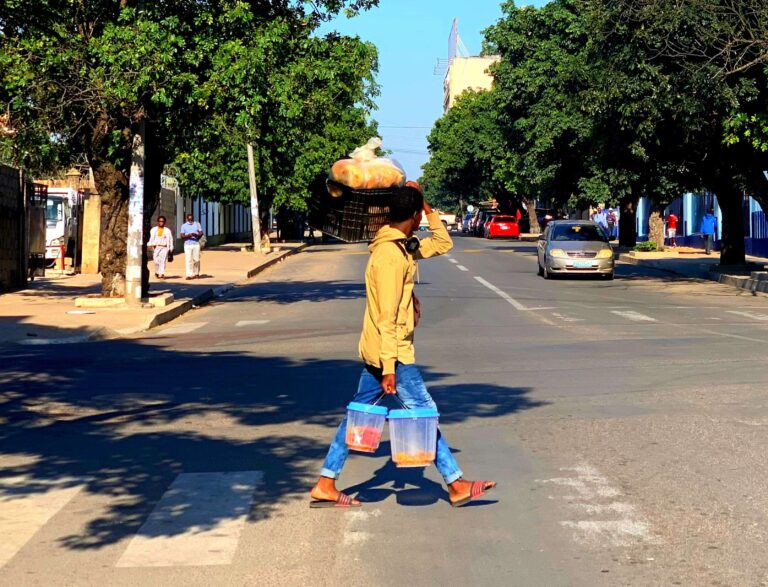
Food in African cities has attracted less attention but that challenge is also shifting, with growing interest in food security [18,19], urban food governance [20,21], urban food security measurement [22], food and urban planning [23] food environments and urban food and the SDGs [24]. The recent mobilisation of African cities to regain some control over food systems, and the launch of projects on the scale of AfriFOODlinks, is evidence that things are changing.
While the urban question is more often dealt with in the field of food systems, the food question is still little dealt with in the field of urban planning. That is what this project aims to address.
Africa’s urban transition has generated increasingly concentrated consumption needs, putting pressure on water and land resources with major consequences for biodiversity and ecosystem services. Additionally, the increasing and poorly regulated use of chemicals in food production and processing raises concerns about new food safety risks in addition to the classic microbiological risks, especially for poor consumers [25]. Greater consumption of packaged foods has increased food-associated waste, and associated energy and emissions footprints. The growth of food economies is still nascent in Africa, so investing now in new circular businesses and infrastructures that close resource loops and pursue cross-sectoral synergies (e.g. with water and energy systems) can contribute to territorial resilience, mitigate against future environmental impacts, and keep material consumption low, while improving access to food and services, and stimulate job creation.
While contributing relatively little towards global greenhouse gases (GHGs), African countries are also particularly vulnerable to climate change with frequent, severe climate shocks that disrupt the supply of nutritious food. The Covid-19 pandemic and associated government lockdowns provided useful insights into existing strengths and weaknesses of African urban food systems. These are well framed in the FAO survey “Urban Food Systems and COVID-19” [26] to which many AfriFOODlinks partners contributed. The interpretation of African responses demonstrated that, compared to global responses, African respondents had higher levels of food loss, increased prices of food commodities, limited availability of staples and of nutritious foods, and increased food insecurity of the vulnerable. Smaller cities were less impacted than larger cities, potentially due to better urban-rural linkages, better understanding of food system actors, and ease of coordination of food actors given a smaller scale.
African cities were less able to respond to challenges, due to limited access to resources. Nevertheless, action was leveraged through local actors, such as civil society, informal systems, and community associations. Notable suggestions for improving resilience to such shocks, proposed by city respondents included:
- Strengthening holistic approaches to the management of food systems while fostering national-local coordination;
- Developing evidence-based and inclusive policy and plans on food systems preparedness and resilience to shocks and extreme events;
- Establishing inclusive food governance mechanisms to ensure that cities can swiftly cope with crisis;
- Facilitating access to food for the most vulnerable through social protection programmes; and reconsidering the role of the informal sector in crisis situations to keep the food supply chain functioning.
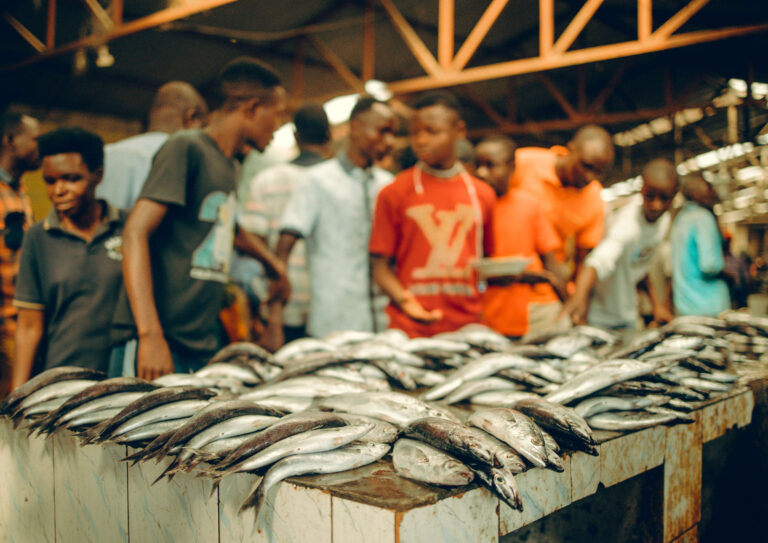
The rapid demographic growth of African countries and their cities also raises questions of employment prospects for women and young people. By 2030, 83 million additional jobs will need to be created in African urban areas – and food systems could generate these labour requirements [27]. Women already play significant roles in the African food system. Involved across the value chain [28], women comprise over 50% of the agricultural workforce in the region and are predominant labour providers in agri-businesses and agro-industries [29]. However, in many parts of Africa, socioeconomic and cultural constraints obstruct women’s contribution to developmental initiatives [30] and they often lack access to agricultural inputs, productive resources, finance, information, services, markets, social protection and technological and entrepreneurial knowledge, and lack access to land and land tenure security, attributable to gendered norms, customs and narratives. However, there are very few gender-sensitive city-level policies and measures in place to mitigate unequal power relations, societal roles and labour divisions [31].
Africa is regarded as the world’s youngest continent. The median age in Africa is 19,7 years of age [32] and increasingly this youth reside in cities. This may imply an ample and energetic workforce with strong development prospects for the region. However, this potential is marred by high rates of stunting, and limited available employment for youths across Africa. While Africa’s youth unemployment rate is 10.7%, low wages and the lack of a social safety net mean that the majority of Africa’s youth work informally, are underemployed or remain in poverty [33].
Addressing this requires greater investment in entrepreneurship, and enabling business climates. In Africa, urban food markets are estimated to be worth USD 250 billion per year, 5 times more than agricultural export markets (AASR, 2020), with over 80% coming from domestic African suppliers [34]. By 2030, food demand is projected to increase by 55%, bringing the size of Africa’s food and agribusiness to USD 1 trillion (European Union, 2019), opening up huge employment opportunities all along the value chain in a continent where the agricultural sector employs an average of 54% of the working population.
Africa’s urban areas are faced with different systemic vulnerabilities along their food and agribusiness systems and suffer from insufficient urban-rural linkages. Improving the efficiency and equity of these linkages is vital for achieving economic inclusion and growth, while reducing avoidable impacts.
Micro, small and medium enterprises (MSMEs) dominate African food systems, with roughly 90% of all food retailing taking place through them (AASR, 2020). Their contributions range from agro-processing to (peri-)urban food production, trading, distribution, retailing, waste management and service delivery to other food chain actors, to name just a few. Africa’s rapid urbanisation is intensifying the role of MSMEs in the overall food system. However, their ability to play this role is hampered by a series of structural challenges: limited finance for investments, lack of infrastructure (i.e. high transport costs, limited access to energy, poor storage), high input costs (packaging, machinery, agro-inputs), disorganised value chain, and an absence of dialogue with decision-makers (European Union, 2019). For example, very few banks are willing to invest in the agri-food sector as it is perceived to be less profitable and riskier than investments in other sectors. However, without business models that work for everyone, sustainable and nutritious food chains are unlikely to scale up.
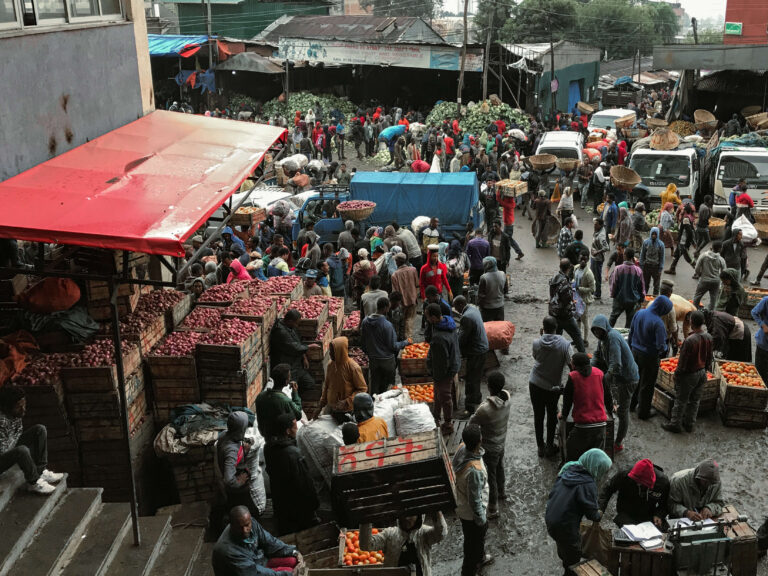
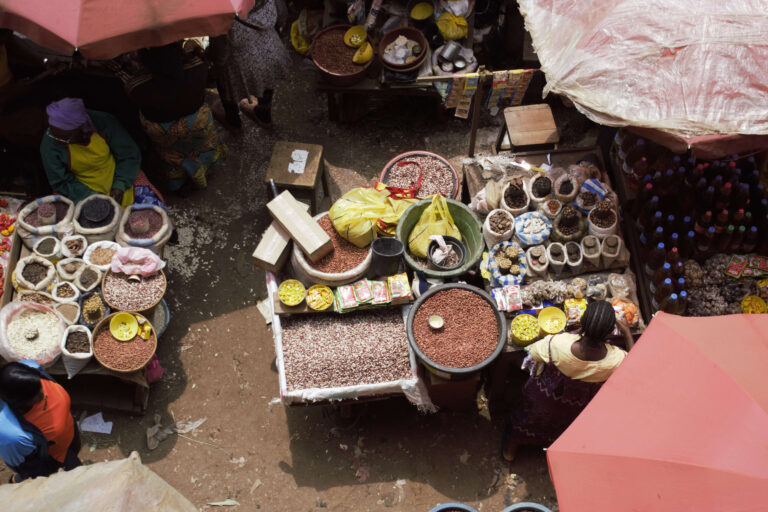
Weak and fragmented governance arrangements across the continent impede the continent’s ability to respond to these challenges in ways that address urban risk and break cycles of risk accumulation. The governance and planning of urban food systems is particularly complex as urban food systems are generally not shaped through deliberate political, organisational and administrative processes. Indeed, local governments remain unclear about where the mandate for food system transformation sits, resulting in partial, and often under-resourced approaches to improving food security.
Food systems transformation towards sustainability requires both horizontal, vertical, and territorial policy and planning coherence [23], and better integration of food and food systems in urban policies and planning. City authorities across Africa have growing awareness of this need for systemic and inclusive approaches to addressing urban food issues, however, there is limited capacity by city stakeholders, and it is poorly reflected in institutional frameworks and implementation.
Finally, current food system governance tends to favour the values and interests of more powerful corporations and investors, big farmers and ignores the needs and priorities of ‘the food system of the majority’ which in most African cities, is informal, semi-formal, and smaller scale. Structured, targeted responses are needed to address such challenges and the multiplication and combination of climatic, health and political crises that have raised concerns about the resilience of food systems [35].
Drawing from the UN Food Systems Summit (UNFSS) Dialogues that were convened by ICLEI, FAO and partners, with 12 African local governments in 2021, and from the Declarations issued from MUFPP Regional Fora in Africa (Niamey 2019 and Ouagadougou 2021), signed by 37 African cities, the importance of both local government and local food system actors was emphasized in driving urban food system transformation. The dialogue outcomes propose ten critical actions for food system transformation. Together, they demonstrate the importance of formulating and strengthening both the micro and macro level food related governance processes.
They show that food systems transformation is dependent on creating and strengthening the linkages across food value chains, food system actors, between formal and informal systems, between resources and entrepreneurs, across different sectors and between the city and its hinterland. Such linkages are key, not only for improving food security outcomes, but also for addressing issues of climate migration, urban poverty, inequality, access to services, economic growth and restoring nature in our African cities.
References:
[1] United Nations, Department of Economic and Social Affairs, Population Division 2019). World Urbanization Prospects: The 2018 Revision (ST/ESA/SER.A/420). New York: United Nations.
[2] FAO, ECA and AUC. 2021. Africa regional overview of food security and nutrition 2020: Transforming food systems for affordable healthy diets. Accra, FAO.
[3] FAO, 2021. Suite of Food Security Indicators.
[4] UNICEF, WHO and WB, 2021. Levels and trends in child malnutrition. Joint child malnutrition estimates. Key findings of the 2021 edition. New York, NY: United Nations International Children’s Fund; Geneva: World Health Organization; Washington, DC: World Bank.
[5] FAO. 2019. FAO framework for the Urban Food Agenda. Rome.
[6] Myers, G. (2014). From expected to unexpected comparisons: Changing the flows of ideas about cities in a postcolonial urban world. Singapore Journal of Tropical Geography, 35(1), 104–118.
[7] Fox, S., & Beall, J. (2012). Mitigating conflict and violence in African cities. Environment and Planning C:Government and Policy, 30(6), 968–981.
[8] Mitlin, D., Satterthwaite, D., Tacoli, C., & Turok, I. (2009). Africa’s urban transition and the role of regional collaboration. London: Human Settlements Group, International Institute for Environment and Development.
[9] Turok, I. (2013). Securing the resurgence of African cities. Local Economy, 28(2), 42–157.
[10] Crankshaw, O. (2012). Deindustrialization, professionalization and racial inequality in Cape Town. Urban Affairs Review, 48(6), 836–862.
[11] Satterthwaite, D. (2003). The links between poverty and the environment in urban areas of Africa, Asia, and Latin America. Annals of the American Academy of Political and Social Science, 590(1), 73–92.
[12] Smit, W. (2012). Urban sustainability and human health: An African perspective. Current Opinion in Environmental Sustainability, 4, 443–450.
[13] Diouf, M. (1996). Urban youth and Senegalese politics: Dakar 1988–1994. Public Culture, 8(2), 225–249.
[14] Honwana, A. (2012). The time of youth: Work, social change and politics in Africa. Washington, DC: Kumarian.
[15] Simone, A. (2005). Urban circulation and the everyday politics of African urban youth: The case of Douala, Cameroon. International Journal of Urban and Regional Research, 29(3), 516–532.
[16] O’Farrell, P. J., Anderson, P. M., Le Maitre, D. C., & Holmes, P. M. (2012). Insights and opportunities offered by a rapid ecosystem service assessment in promoting a conservation agenda in an urban biodiversity hotspot. Ecology and Society, 17(3), 27
[17] O’Farrell, Patrick, Pippin Anderson, Christina Culwick, Paul Currie, Jessica Kavonic, Alice McClure, Gertrude Ngenda, et al. (2019) “Towards Resilient African Cities: Shared Challenges and Opportunities towards the Retention and Maintenance of
Ecological Infrastructure.” Global Sustainability 2: 1–6.
[18] Frayne, B., Pendleton, W., Crush, J., Acquah, B., Battersby-Lennard, J., Bras, E., . . . Zanamwe, L. (2010). The state of urban food insecurity in southern Africa. Cape Town. Cape Town: AFSUN.
[19] Kimani-Murage, E.W, Osogo, D., Owii, H., Mbuthia, M., Sipalla, F., Njoki, T., Kathoka, F., Ombasyi, J., Mutura, K. Kariuki, E. (2019), Warwick, M. In Their Voices: Lived Experiences With Food Insecurity Among The Urban Poor. Nairobi: African Population and Health Research Center. ISBN: 978-9966-137-58-6; ISSN: 2707-6520.
[20] Battersby, J., & Watson, V. (2018). Urban food systems governance and poverty in African cities (p. 290). Taylor & Francis.
[21] Haysom, G. (2015). Food and the city: Urban scale food system governance. In Urban Forum, Vol. 26, No. 3, pp. 263-281.
[22] Haysom, G., & Tawodzera, G. (2018). “Measurement drives diagnosis and response”: Gaps in transferring food security assessment to the urban scale. Food Policy, 74, 117-125.
[23] Haysom, G. (2021, September). Integrating Food Sensitive Planning and Urban Design into Urban Governance Actions. In Urban Forum (Vol. 32, No. 3, pp. 289-310). Springer Netherlands.
[24] Battersby, J. (2017). MDGs to SDGs–new goals, same gaps: the continued absence of urban food security in the post-2015 global development agenda. African Geographical Review, 36(1), 115-129.
[25] Liguori, J., Trübswasser, U., Pradeilles, R., Le Port, A., Landais, E., Talsma, E.F., Lundy, M., Béné, C., Bricas, N., Laar, A. and Amiot, M.J., 2022. How do food safety concerns affect consumer behaviors and diets in low-and middle-income countries? A
systematic review. Global Food Security, 32, pp.100606.
[26] FAO. 2020. Cities and local governments at the forefront in building inclusive and resilient food systems: Key results from the FAO Survey “Urban Food Systems and COVID-19″, Revised version. Rome.
[27] Bendjebbar P., Bricas N. & Giordano T., 2019. Food systems at risk. Trends and Challenges. A scientific handout for the High Level Event of the Global Network against Food Crises: Food & Agriculture in times of crisis, Brussels, 2-3 April 2019. Montpellier, Cirad, 48 p.
[28] Gnisci, D., 2016. Women’s Roles in the West African Food System: Implications and Prospects for Food Security and Resilience. West African Papers, 03. OECD Publishing, Paris.
[29] FAO, 2011. The state of food and agriculture, 2010-2011.
[30] Akinola, A.O., 2018. Women, culture and Africa’s land reform Agenda. Frontiers in psychology, 9, pp.2234.
[31] Alber, G. and Cahoon, K., 2015. Urbanization and global environmental change: from a gender and equity perspective. In Seto, K.C., Solecki, W.D. and Griffith, C.A. (eds). The Routledge Handbook of Urbanization and Global Environmental Change, pp.310-324.
[32] Saleh, M. (2021). Median age of the population of Africa 2000-2020, Apr 7, 2021.
[33] ILO, 2022. Unemployment rate. ILO modelled estimates. ILOstat. Available at: <https://ilostat.ilo.org/data/#> [Accessed 19 February 2022]
[34] AGRA. (2019). Africa Agriculture Status Report: The Hidden Middle: A Quiet Revolution in the Private Sector Driving Agricultural Transformation (Issue 7). Nairobi, Kenya: Alliance for a Green Revolution in Africa (AGRA).
[35] Dury, S., Bendjebbar, P., Hainzelin, E., Giordano, T. and Bricas, N., 2019. Food Systems at Risk. New trends and challenges.
Explore
"Governance"

Read more about
"Governance"
READ MORE
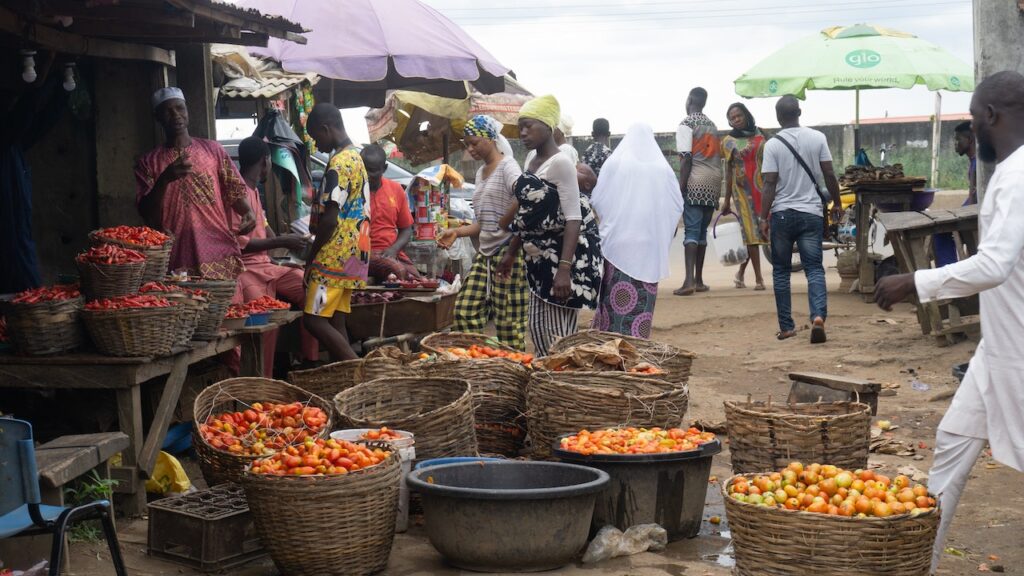
Cultivate Marketplace for transforming African urban food systems: Building bridges between cities and global funders
Unlike a traditional pitch event, the Marketplace will create a structured, low-risk space where cities and funders can learn from one another, exchange insights, and explore alignment.

